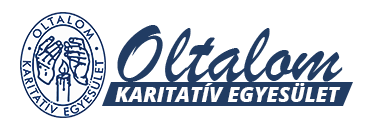Maintainer: Hungarian Evangelical Fellowship
Address: 1086 Budapest, Dankó u. 11.
Phone: (06 1) 577 05 10
Leader of Institution: Barnabás Farkas
Based on an agreement with the 5th district council, Oltalom Charity Society has accepted the task to look after homeless people staying in the district or having a place of residence or address within the 5th district. The street social work in the 5th district and the work of the Heated Street functionally complement each other. The social workers and administrators from the Night Shelter, other winter crisis shelters, the Heated Street, heated public rooms, communal kitchens, and the health care system are working together to gather information on the lifestyle and living patterns of the homeless people so that we can coordinate our street social work better.
Thanks to our two and a half years of experience, more and more people on the street trust us and accept the help and social assistance of our institutes!
Since 2005 there have been two permanent social workers on duty with on-call support as needed.With this, a system of trust has developed on the street which makes those coming from the street feel safe.
During the crisis season we visit the most endangered clients twice a night. We often have difficulty finding them since they regularly change the places they stay. In 2006 we worked with more than 200 individuals making between 50 and 70 visits per day.
We kept in touch with those on the streets and public areas of the district; we distributed blankets, sleeping bags and a one-course meal from our Communal Kitchen. In each case, we offered the services provided by our organization, which in our experience are used by more and more people. During the year we transported some people in a bad state of health to the Oltalom’s recovery room. Anyone who requires hospital care is transferred to public health institutions by the Social Ambulance.
The homeless people who come to us are mostly accommodated in our recovery room, where they are under constant medical supervision in addition to providing three meals a day. They are contacted by the staff of the social office and administrative services begin. Most of the time if we need to replace documents, we also try to help them integrate into the institutional norm system. Since we are talking about those who live on the streets permanently, we do not always manage to keep them, despite the great care.
The target group of the street social work in the 5th district:
- Primarily homeless men and women,
- Homeless in need of health care, mental health services, and disabled people
- People with substance abuse problems,
- Juveniles in need of family connections,
- People in family crisis, temporarily on the street,
- People living in deserted buildings (alone, with partners or in groups)
Our work includes the following:
- Fact-finding, surveying, making “maps” of the mental, physical and health state of the homeless clients.
- Contact with the clients of Dankó 9. and 15. (for the sake of prevention) and with the homeless living in deserted buildings. The goal is to estimate the need and the state of these people and to find ways of collaboration.
- Advising, problem solving, mobilizing the client’s own resources, answering their questions as they emerge.
- Physical assistance, making use of the social ambulance, organizing the transportation of the client into a social or health institute, fill the fundamental physical and mental needs (food, medicine, clothes, blankets, etc.).
- Administrative services, e.g. obtaining documents, providing representation, assistance in job-hunting, making connections with lost family members, friends, etc.
- Individual case management and teamwork: good communication is the basis for further cooperation – through individual case management – to enable homeless people to accept basic help, institutional use and minimum standards for coexistence. Keep their own environment in order, be attentive to others in their behavior, help each other within the group (not just out of interest, but in a supportive cooperation).
- In case of emergency our service transports the client to our health center or to hospital.
Our work is supported through the Oltalom Charity Society. We are in daily contact with our colleagues at the social and health institutes of Oltalom Charity Society and our work includes collaborative team discussions and supervision.
